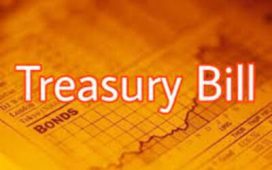Some 11 out of 27 Oil Marketing Companies (OMC) that benefitted from the Gold-for-Gold policy have failed to reduce the prices of their commodities, Dr Amin Adam, the Deputy Minister for Energy has said.
The situation, he said had been a setback on the policy intended to improve the supply of the commodity, positively influence price change, and shore up the exchange reserve of the country.
“National Petroleum Authority (NPA) has to be very rigorous in ensuring that the framework that will be published to govern the pricing of the product is a strong framework.
“And they have to ensure that they are able to monitor all those OMCs that will take the product to ensure they reflect in their pump prices,” he said in a media engagement.
Ghana piloted the Gold for Oil policy with the delivery of 41,000 metric tonnes from the United Arab Emirates (UAE), which arrived at the Tema port on Sunday, January 15, 2023.
Speaking in an interview with the Ghana News Agency (GNA), Mr Duncan Amoah, the Executive Secretary of the Chamber of Petroleum Consumers Ghana (COPEC), said it was encouraging to have more than 50 percent of OMC reducing their prices under the policy.
He, however, called for “purposeful planning” with a clear objective of either ensuring fuel security or reduction in pump prices. That, he said, would require a constant supply of the commodity on the market to meet the demands.
“You must be focused and know that 41 000 metric tonnes might not do the trick. So, If I am bringing 41, another cargo must come at 60, and must come at 70, to be able to contain the market demand.
“If you are going to throw a little in the ocean and expect a ripple effect, you might not get it,” he said.
The prices of fuel in Ghana are mainly determined by the world market price of the commodity, cedi depreciation, taxes and levies. As of November 2021, the government had imposed 12 different taxes and levies on petroleum products while the Cedi had declined by more than 55 per cent between January and October 2022.
Mr Amoah urged the Bank to Ghana (BOG) to focus on addressing the volatility of the Cedi by, “using the gold to back the Cedi so that it can have a certain semblance of stability for trading.
Mr Alex Mould, a former Chief Executive Officer (CEO) of the Ghana National Petroleum Corporation (GNPC), said the Gold-for-Oil policy was a smokescreen by some players to enter and control the oil import and gold export market using government apparatus.
“People with the license to these things are not happy because they can be eliminated,” he stated.
Source: GNA












